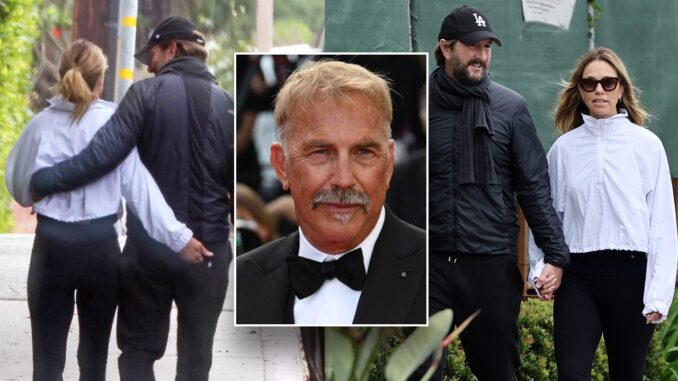
The Crooked Road Home: Kevin Costner's Surprising U-Turn
The career of Kevin Costner has always been a landscape of sweeping vistas and sudden, dramatic drops. From the triumphant peaks of Dances With Wolves to the watery abyss of Waterworld, he has built and dismantled empires, often with his own hands. But perhaps no stretch of his long, storied journey has been as starkly illustrative of reinvention as the period following his bitter exit from Yellowstone and the bruising, self-funded spectacle of his Horizon gamble. It was a double blow that, for most, would signal a quiet retirement. For Costner, it became the unlikely catalyst for a surprising, poignant U-turn, back to a different kind of stage, a different kind of truth.
For five seasons, Costner was inextricably linked to John Dutton, the stoic, land-scarred patriarch of Yellowstone. The show wasn't just a hit; it was a cultural phenomenon, a return to the rugged individualist archetype that had defined Costner's golden age. His performance felt like a homecoming, solidifying his status as America's modern-day cowboy king. He was back, firmly seated on the throne. Then, the whispers began. Scheduling conflicts, creative differences, a very public, very acrimonious parting of ways. The headlines screamed "bitter exit," casting a pall over what should have been a crowning achievement. The king, it seemed, had been dethroned, or perhaps, had stormed off himself, leaving a gaping void in the Yellowstone narrative.
Into this already volatile mix, Costner poured his entire being, and a reported $100 million of his own money, into Horizon: An American Saga. This wasn't just a film; it was an epic, a multi-part Western passion project decades in the making, the kind of audacious, self-financed gamble that had both defined and derailed his career before. He directed, he starred, he willed it into existence. The Cannes premiere, a star-studded affair, felt like a defiant statement, a declaration that his cinematic vision remained undimmed. But the box office told a different story. Horizon: Chapter 1 struggled, barely recouping a fraction of its investment, and critical reception was lukewarm at best. It wasn't just a flop; it was a personal flop, a colossal financial and creative gamble that seemed to have landed Costner squarely on the rocks. The "bitter exit" from Yellowstone had been external; the Horizon flop was a wound from within.
The usual playbook for a star of Costner's magnitude after such a public double-punch would involve a quiet retreat, perhaps a few carefully chosen, lower-profile roles, or a period of professional recalibration behind the scenes. No one would have begrudged him that. But Costner, ever the maverick, surprised everyone. He didn't sign on to another blockbuster, nor did he issue a lengthy press statement defending his choices. Instead, the Crooked Road Home led him to a different kind of stage, under different kinds of lights: the music stage.
Costner had quietly maintained a country rock band, Modern West, for years, releasing albums and playing smaller gigs. It was a side passion, a creative outlet separate from the pressures of Hollywood. But in the wake of Yellowstone's fractured ending and Horizon's bruising reception, Modern West became his primary focus, his unexpected U-turn. Suddenly, the very public figure synonymous with Hollywood opulence was seen touring with his band, playing intimate venues, strumming a guitar, and singing unvarnished songs about life, love, and the American West. There were no CGI horses, no massive production budgets, just raw, earnest performance.
This pivot was more than just a change of scenery; it was a radical shift in his public persona. The guarded, intensely private Costner began to appear more vulnerable, more accessible. He spoke openly about his personal challenges – his divorce, the financial strain of Horizon – on stage, weaving them into the fabric of his performances. He wasn't chasing box office numbers or critical acclaim; he was chasing the hum of guitar strings and the immediate connection of a live audience. He was no longer solely the ambitious architect of cinematic empires; he was a musician, a storyteller in a different medium, finding a different kind of currency in authentic expression.
Kevin Costner's surprising career U-turn is a testament to resilience, a masterclass in redefining success on one's own terms. After the public humiliation of a bitter exit and a monumental flop, he didn't disappear. Instead, he stripped away the layers of Hollywood expectation and returned to a more elemental form of artistry. The crooked road home wasn't paved with gold statues or blockbuster deals; it was paved with the simple, resonant chords of a guitar, proving that sometimes, the most surprising and fulfilling paths emerge from the wreckage of shattered dreams, leading to a quieter, more authentic triumph.
